Everything You Need to Know About Menopause—From Women Who’ve Been There
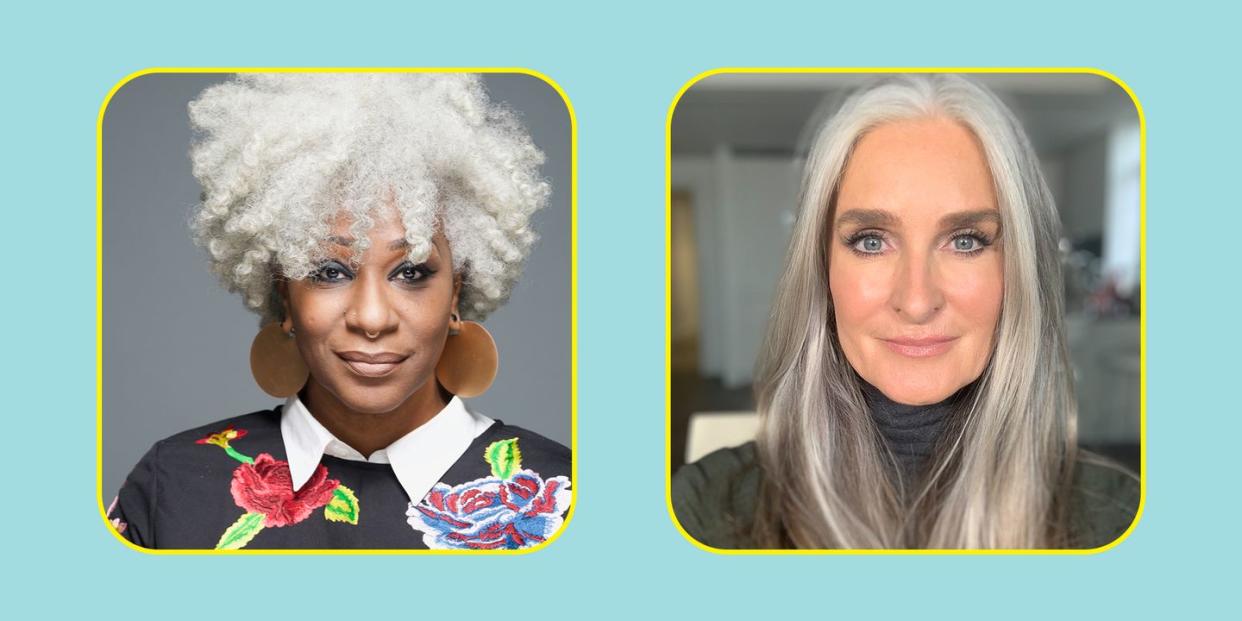
Even though menopause is a normal part of aging there’s a lot most of us don’t know about the life change.
To get the basics out of the way: You’ve officially reached menopause when it’s been an entire year since you’ve had a period or spotting, as defined by the Office on Women’s Health. Afterward, your ovaries make very low levels of estrogen and progesterone. Menopause can cause symptoms like hot flashes, irregular periods, and vaginal dryness, but it can also cause emotional changes, like mood swings.
Since menopause isn’t usually the first thing discussed at cocktail hour, you probably have some questions about what this next chapter is really like. Below, four women open up to Prevention about their personal experiences with menopause, including nitty-gritty details from what sex feels like to trouble sleeping.
“There are options.”
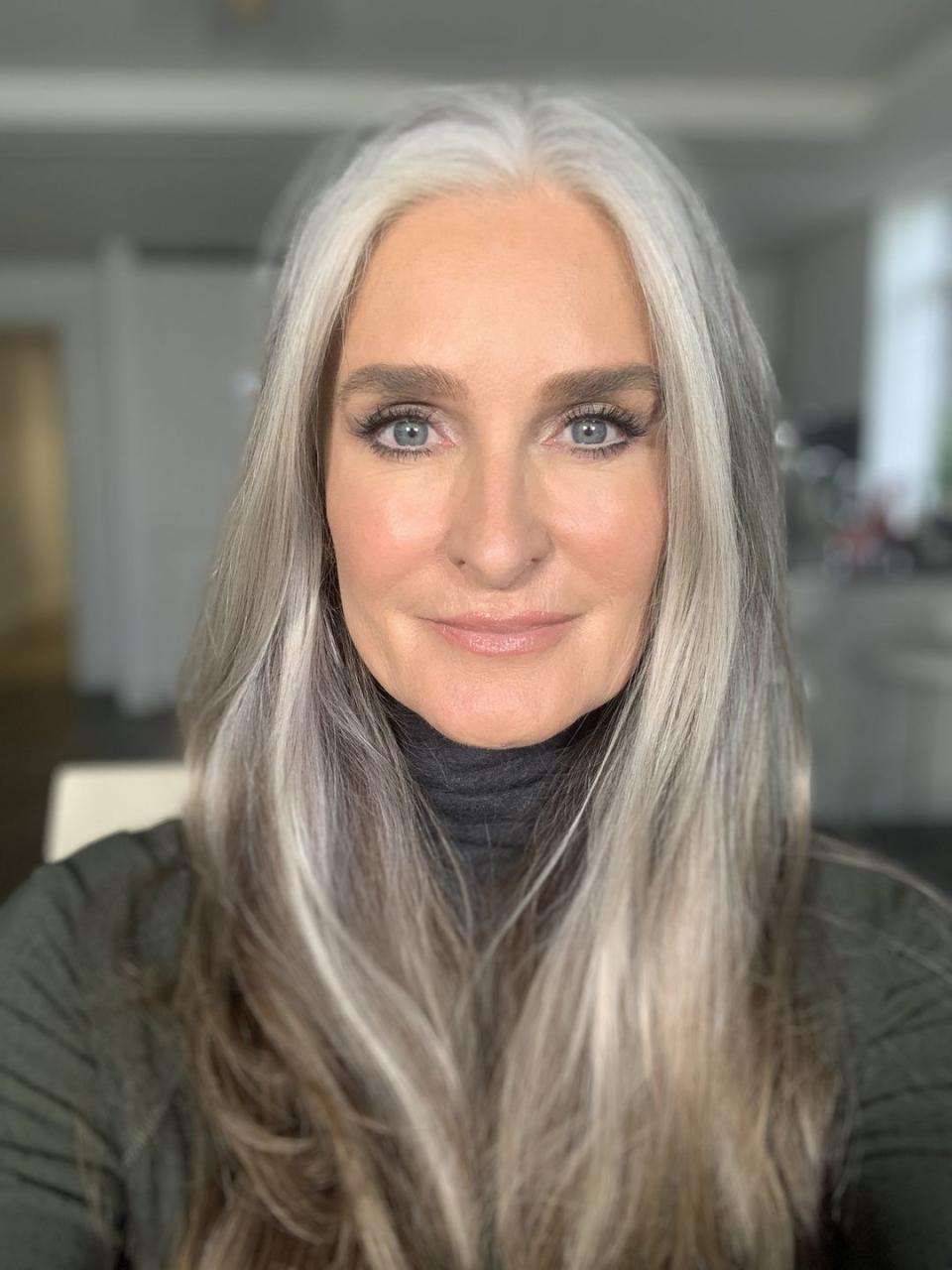
Caroline Labouchere, 56, started going through menopause about six years ago and didn’t really know what to expect. “As a teenager, I had no idea why my mother was no longer acting normally,” she remembers about that period in her mother’s life. “She was crying and throwing things around the kitchen. It seemed out of place. No one in my life talked about menopause.”
Labouchere says she was “surprised” to learn that there are “so many symptoms, and that hormone replacement therapy can help you with most of them.” Hormone replacement therapy (HRT) is a treatment available to menopausal women to supplement their dwindling hormones. While most are pills you can take every day, HRT is also available via skin patches, creams, and vaginal inserts. For Labouchere, perhaps the worst symptom was her lowered sex drive. “It can break a marriage,” she says. Thankfully, HCT has been a huge help on that front.
Her advice for other women approaching menopause: Get proper care. “A menopause specialist will give you options—not the simple, ‘go and get a hobby’ option,” she says.
“Menopause can be isolating, but there are so many of us.”
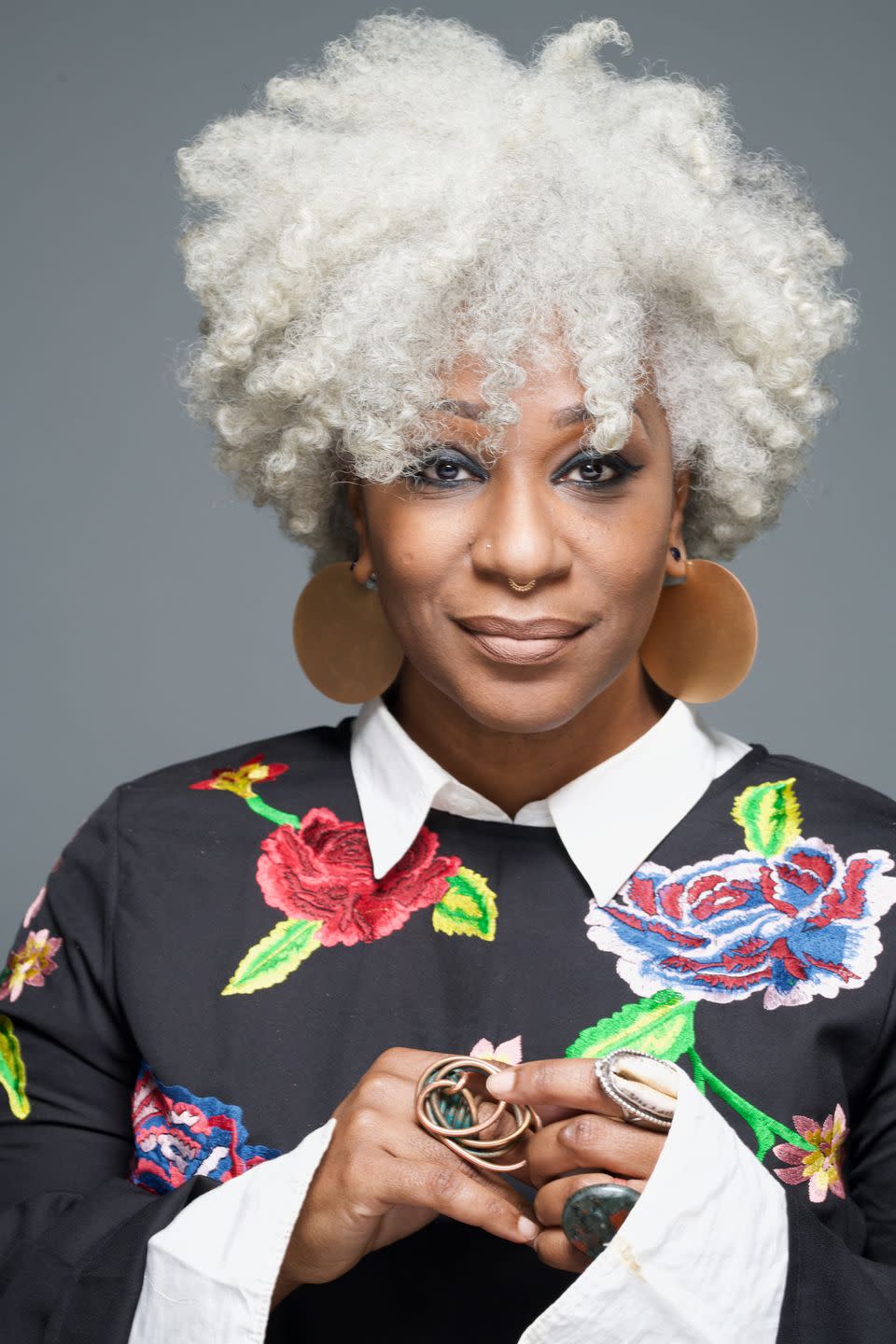
Omisade Burney-Scott, 54, first started perimenopause—the transition period leading up to menopause—after having a baby at age 41. “After I gave birth to my son, I started having hot flashes, night sweats, and insomnia,” she says. “I also experienced some really intense depression that I feel like was amplified by some of my perimenopausal symptoms.” Burney-Scott turned to supplements for her symptoms, including black cohosh for hot flashes, St. John’s wort for anxiety, and melatonin to help with sleep.
“Menopause can be an isolating experience but there are so many of us in this boat together,” Burney-Scott says. To create the community she never had, she founded the Black Girl’s Guide to Surviving Menopause, an online group for women to relate and find out more information about the “next chapter”. “We don’t normalize aging, and people are fearful of menopause. I wanted to have a place women could go to for answers, and to learn that what they’re going through is normal,” she says.
“It’s more than just hot flashes.”
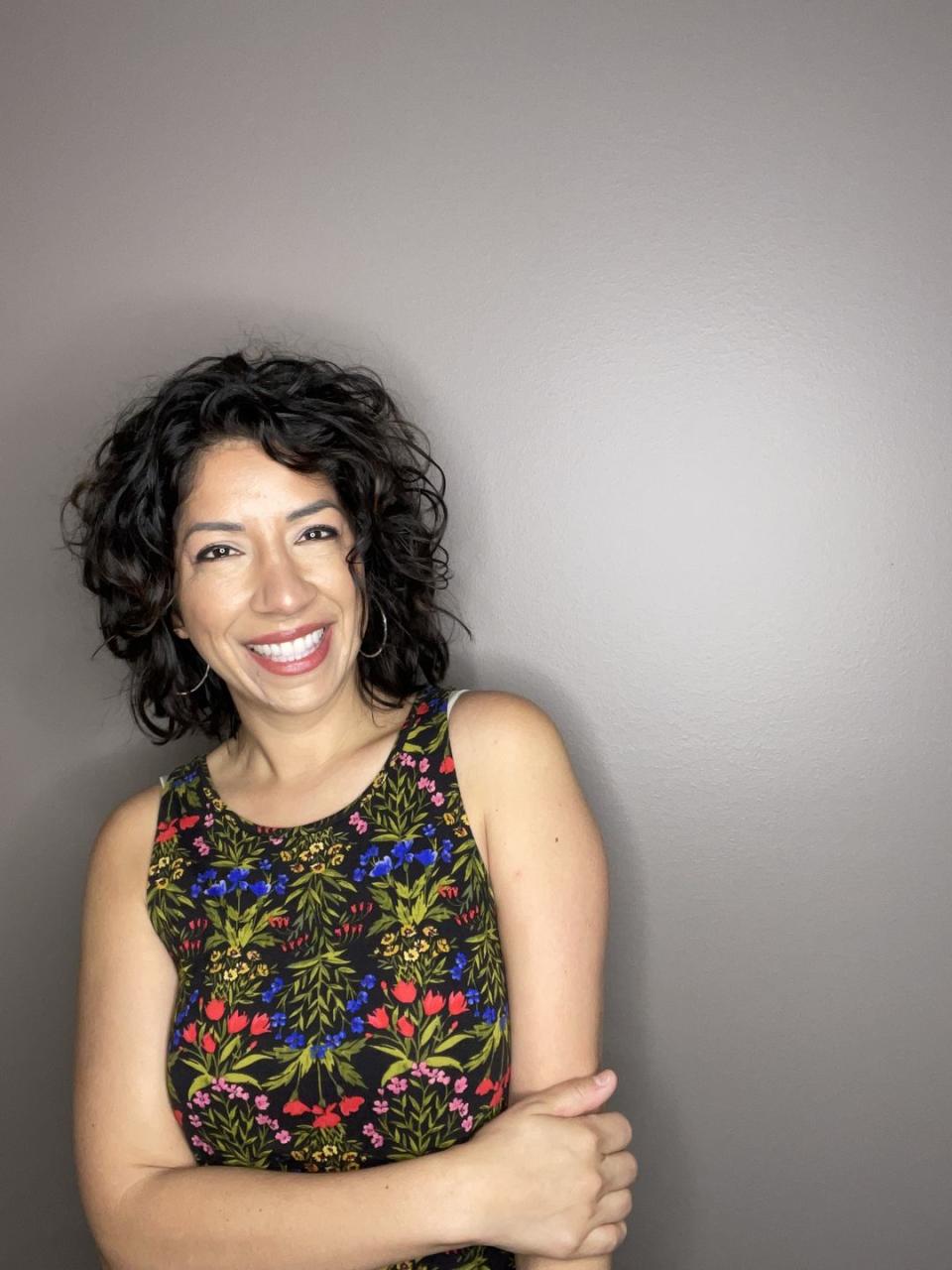
Monica Brooks was just 38 when she was put into medical menopause due to a cancer diagnosis. “My tumor fed off estrogen so they had to ‘turn it off’ by suppressing my estrogen,” she says. She also had her ovaries and fallopian tubes removed.
“At first I thought menopause was just hot flashes,” she says. “I came to understand what vaginal dryness felt like and I had to talk to my doctors about it to get relief.”
Brooks, now 40, says that sex was more painful after menopause, but instead of remaining quiet, she spoke out. “I talked to my health professionals about my concerns and they were able to recommend some products for me,” she says. “I was glad I spoke up and said something instead of dealing with the pain and discomfort. I’ve learned that the more I’m willing to talk about issues I’m having, the more help I can get.”
She’s learned additional, more day-to-day, tricks to get her through the tough moments, particularly hot flashes, like running her hands and wrists under cold water to cool down. She always dresses in layers so she can transition into cooler clothes quickly. And she’s also changed her diet, eating mostly plants. Brooks makes a point to exercise regularly, too. “I exercise for overall health but also because lower estrogen can negatively affect your bone health,” she says. “So by regular exercises such as walking, running, or other weight-bearing exercises, I can improve my bone health.” Overall, Brooks says, “I feel empowered when I make positive choices and focus on what's in my control.”
“Sleep has been the most challenging.”
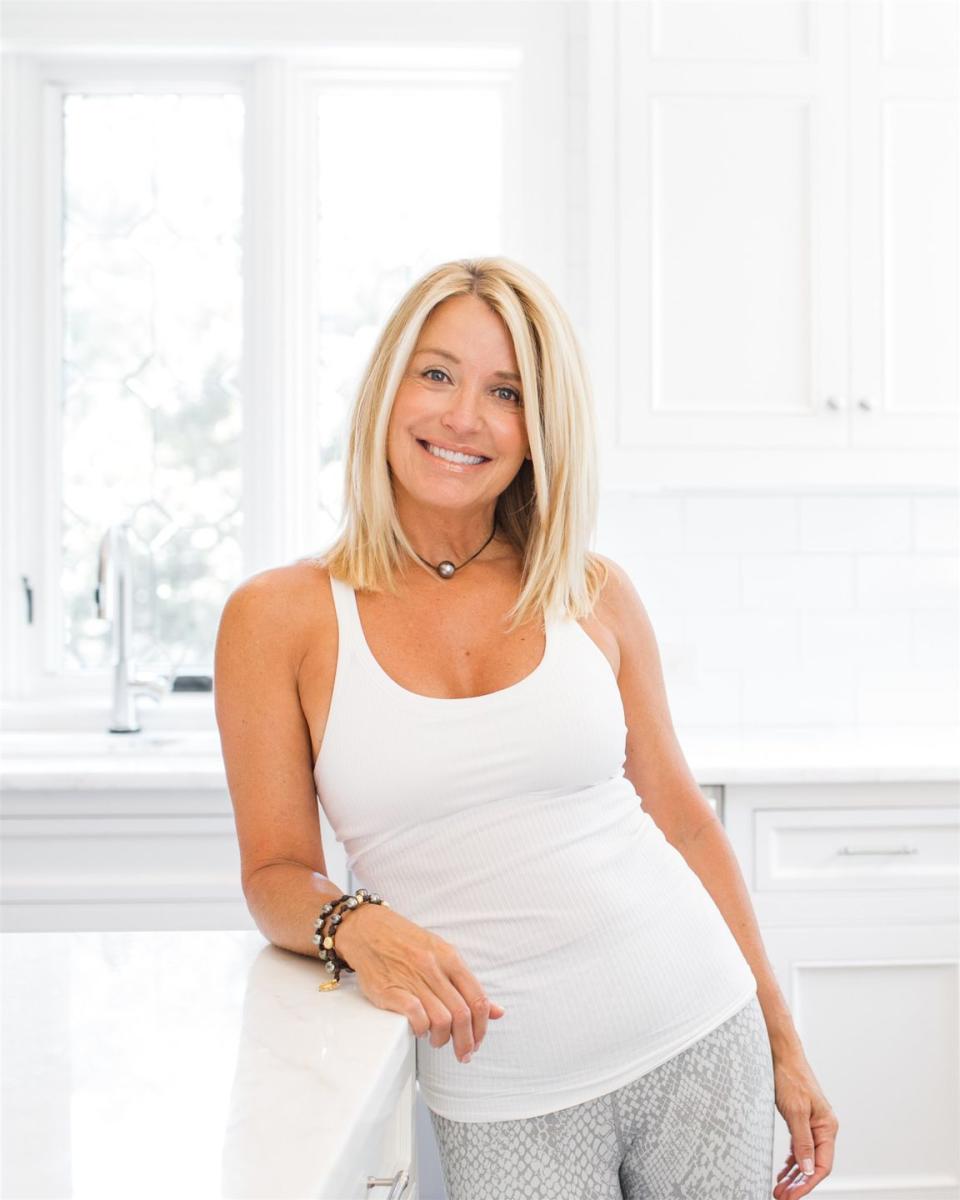
For 55-year-old Deanna Pizitz, reaching menopause wasn’t wildly disruptive, save for one aspect of her life: falling and staying asleep. Pizitz says she’s worked really hard to create an environment that helps her to rest peacefully through the night. That includes using “nice sheets,” a cooling mattress pad, a Tempurpedic pillow, and using a melatonin supplement.
Pizitz says she’s learned the importance of “knowing what to expect and taking action sooner than later” when it comes to menopause. That, she says, “can help us manage through this difficult time.” Every eight-hour night she gets, she wakes up feeling empowered to seize the day.
You Might Also Like

